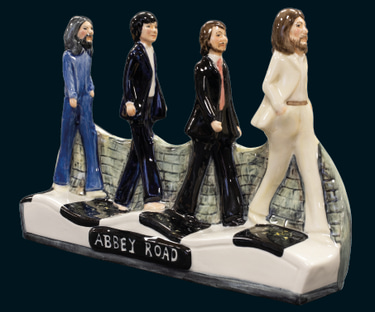6.
The Searchers.
Part 1: Meet The Searchers.
It was the early summer of 1963 and my friends and I were sitting idly in a coffee bar, whiling away the time. A burly workman approached the jukebox and scanned the choices in the display panel. ‘What’s this?’ he said loudly to his pals, ‘Sweets For My Sweet? By The Searchers?’ Clearly he and his chums had never heard of them. Nor had I, or mine.
He inserted his coin and punched the button. The record started playing. We were transfixed. We had never heard anything like it. For sheer drive, energy, enthusiasm and excitement, this record was just about unbeatable. The song was so catchy and effervescent, the singing impassioned, and the playing utterly committed and professional. Truly this was a unique package and a classic of its time! What a great record! What a great group!
Mid-1963 was a period of great excitement in the pop music world. The Beatles had broken through in a big way in Britain with their second and third singles, ‘Please Please Me’*** and ‘From Me To You’**. Meanwhile other fresh and compelling new groups on the scene such as Gerry and The Pacemakers, The Hollies and Billy J. Kramer with The Dakotas were following in their wake. And that is not to mention another group of unruly young upstarts….The Rolling Stones. The old order of stars dominated by Elvis Presley, Cliff Richard and The Shadows, and a succession of mostly American easy listening solo performers, was starting to crumble at the edges.
Into this changing world blasted The Searchers, as their first single ‘Sweets For My Sweet’ charged into the charts in July 1963, hitting no. 1 a month later. Like The Beatles, the Searchers hailed from Liverpool and were widely regarded as one of the premier bands from the area. After such a strong start to their recording career, for a time they were among the groups considered in the running to challenge The Beatles for supremacy in the pop world.
However, despite a superb run of great and beautiful chart hits, that was never going to happen – because of one fatal flaw in The Searchers’ make-up. They looked good, they had two excellent lead singers and they performed well as a group both in the studio and in live concert. But, unlike their competitors, The Beatles, The Searchers were generally unable or unwilling to write suitable new songs for them to perform and record. Ultimately and inevitably, The Searchers’ run of hits faded away after a few years at the top. Their desperate search for outside new material to sustain the public’s interest in them became ever more difficult and unrewarding. Finally it proved impossible.
The Searchers themselves, with a couple of line-up splits and changes along the way, continued to release singles into the 1970s. They even had a couple of modestly acclaimed album releases in 1979 and 1981 in a new lease of life. But, whilst updating the group’s sound, these records once again relied heavily on outside material to make up the numbers, and no further chart success was forthcoming at that time or thereafter to sustain and encourage them. The fact that a version of the group (actually two separate and competing versions) continued until very recently must be an achievement in itself. However, one can’t help feeling that with some original ideas and a slightly different focus, The Searchers could and should have done much better with their own internal talent. In other words, they should have lived up to that early promise when they appeared almost ready to take over the world. As The Beatles did!
